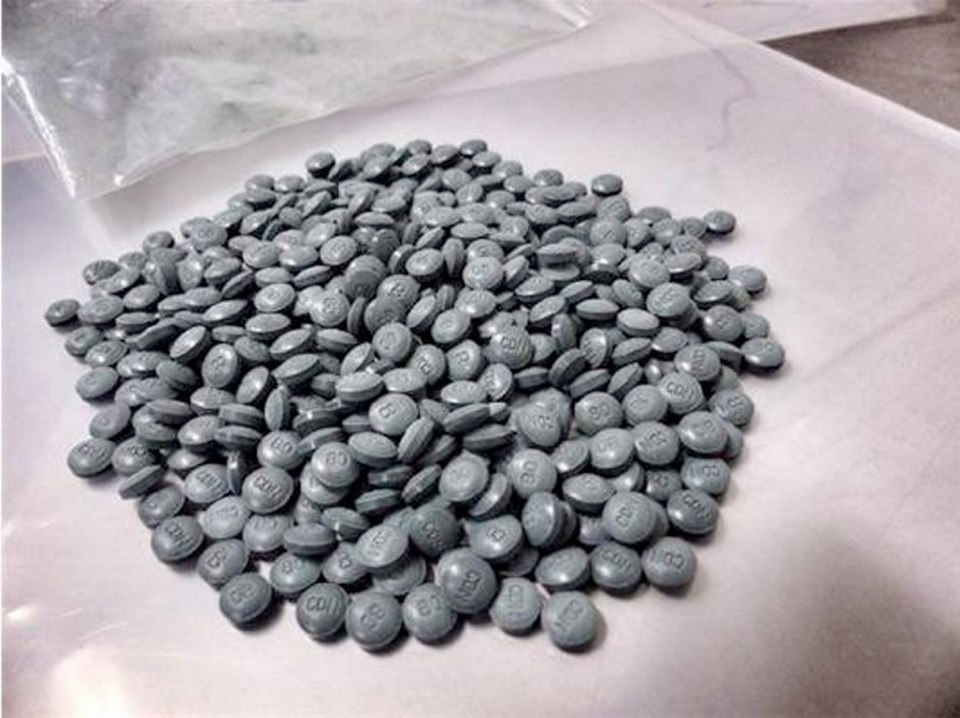The high rate of drug overdose deaths on Vancouver Island highlights a shortage of addiction treatment and recovery services in the region, NDP Leader John Horgan charged Monday.
The MLA for Juan de Fuca, who met with families and front-line service providers in Victoria, criticized the provincial government, saying its response to the crisis has been scattered and tardy.
“What we heard over and over again today is that we need a mental-health and addictions system, not ad-hockery, not piecemeal government, which is what we’ve been getting,” he said.
The latest overdose statistics from the B.C. Coroners Service showed Island Health with the highest death rate this year among all health authorities.
There were 93 overdose deaths in the region to the end of August compared to 488 deaths province-wide. Fentanyl, a powerful synthetic opioid, was involved in 60 per cent of the provincial deaths, the coroners service said.
Horgan said he and other local MLAs get people coming to their offices all the time looking for help, but have few places to send them. “The resources are just not there.”
He complained that people in need of treatment are being sent to “already cramped” facilities on the Lower Mainland. “There are many outstanding facilities in the Lower Mainland but the problem — the crisis — is getting bigger by the day,” he said.
Island Health confirmed that people, in some cases, are sent for residential treatment on the Lower Mainland.
“But that’s not to say that we don’t have a continuum of government-funded, Island Health-funded substance use beds,” said Kelly Reid, a director of mental health and addictions services with Island Health.
He said the health authority has a range of options on the Island, including 38 medical detox beds, 22 stabilization beds in Victoria and supported recovery beds in communities across the Island.
In addition, there are 20 sobering and assessment beds in Victoria.
In terms of residential treatment, Reid said a First Nations facility in Port Alberni is partly funded by Island Health.
Reid said the health authority expects to add 38 more beds this year as part of the provincial government’s plan to add 500 spaces across the province.
“We’re thickening in areas that may have been a little thin, and we’re filling any gaps that might exist in the continuum now,” Reid said.
Island Health also confirmed last week that it plans to apply by the end of the year to open at least two safe consumption sites for drug users in Victoria.
But Horgan said the provincial government should be doing more, faster, particularly given that its surplus is already $2 billion higher than expected this year.
“They have the money; they just found it,” he said. “Let’s put it into detox, let’s put it into recovery and let’s do it here on Vancouver Island today.”
Gordon Harper, executive director of the Umbrella Society for Addictions and Mental Health, echoed Horgan’s call for more services.
“It helps to start out with a basic understanding that whatever services we’re talking about there’s not enough of them,” he said.
In addition, it’s often difficult for individuals and families to navigate the complex array of things that are available, he said.
“We need to have a system where people can get the services they need, in the order that they need them, and in a timely way,” Harper said.
Pender Island’s Leslie McBain, whose 25-year-old son, Jordan, died of an opioid overdose in 2014, sits on a task force tackling the issue and appears in a government video about overdose awareness. The founder of Moms Stop The Harm said she is frustrated by the slow pace of change.
“I see that there is a lot of compassion and a lot of interest and the will to do things, but the time it’s taking is ridiculous,” she said. “It just can’t seem to move any faster and I don’t understand that.”



